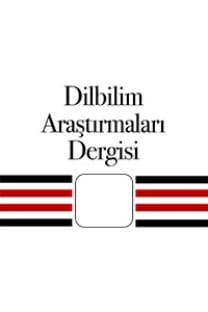Eylem Önü Konumundaki Çıplak Özne AÖ'lerin Belirlilik Durumu
It is a widely accepted assumption that there is no default definiteness status for bare subject NPs in Turkish and that they are ambiguous between definite-referential and non-definite non-referential readings in both verbal and non verbal sentences (Dede, 1986; Tura,1986). It is also assumed that they are ambiguous between singular and plural forms. This study aims at examining how actual receivers interpret bare subjects in the preverbal position. For this purpose, I prepared two different perception tests including verbal and non-verbal sentences with bare subjects in the preverbal position. The results of the research display that though they are ambiguous, there is a default interpretation for such NPs which is indefinite singular. I claim that although both the bare and indefinite form 'bir+AÖ' are singular terms, the bare form is preferred when the subject is non specific.
___
1. Abbott, B. (2001). Definiteness and indefîniteness. Laurence R. Horn & Gregory Ward (haz.),Handbook of Pragmatics içinde. Blackwell: Oxford.2. Barwise, J & Perry, I (1983). Situations and Attitudes. MIT Press: Cambridge.
3. Chesterman, A. (1991). On definiteness: A Study with Special Reference to English and Finnish. Cambridge University Press: Cambridge. Chomsky, N. (1965). Aspects. MTT Press: Cambridge.
4. Comrie, B. (1989). Language Universals and Linguistic Typology. University of Chicago Press: Chicago.
5. Croft, W. (1988). Agreement vs. case marking and direct objects. M. Barlow ve C. Ferguson(haz.), Agreement in Natural Language içinde. CSLI: Standford.
6. Dede, M. (1986). Definiteness and referentiality in Turkish verbal sentences. D. Slobin, K.Zimmer (haz.), Studies in Turkish Linguistics içinde. John Benjamins: Amsterdam.
7. Donellan, K. (1966). Reference and definite descriptions. G. Osterlag (haz.), Definite Descriptions içinde. MTT Press: Cambridge.
8. Emeksiz, E. Z. (2004). Özgüllük ve belirlilik. Doktora tezi, Ankara Üniversitesi.
9. Erkü, F. (1983). Discourse pragmatics of word order in Turkish. Doktora tezi, Minnesota Üniversitesi.
10.Erguvanlı, E. E. (1984). Function of word order in Turkish Grammar.Berkeley: University of California Press.
11.Givon,T. (1978). Definiteness and referentiality. J. Greenberg (haz.), Universals of Human Language, Vol.4, içinde. Standford University Press: Standford.
12.Givon,T. (1984). Syntax: A functional Typological Introduction. John Benjamins: Amsterdam.
13.Göksel, A. & Kerslake, C. (2005). Turkish: A Comprehensive Grammar. Routledge.
14.Gundel, J. K. (1985). Shared knowledge and topicality. Journal ofPragmatics, 9,83-107.
15.Heim, I. (1982). The semantics of definite and indefinite noun phrases. Doktora tezi, MU.
16.Knecht, L. (1985). Subject and object in Turkish. Doktora tezi, MTT.
17.Lyons, C. (1999). Definiteness. Cambridge University Press: Cambridge.
18.Russell, B. (1905). On denoting. (Yeniden yayımlayan) Osterlag, Gary (1998). Definite Descriptions. MTT Press: Cambridge.
19.Tura, S. S. (1986). Definiteness and referentiality in Turkish non verbal sentences. D. Slobin,K. Zimmer (haz.), Studies in Turkish Linguistics içinde. John Benjamins:Amsterdam.
- ISSN: 1300-8552
- Yayın Aralığı: Yılda 2 Sayı
- Başlangıç: 1990
- Yayıncı: Dilbilim Derneği
Sayıdaki Diğer Makaleler
The Inıtial Coronal Consonants of Some Inflectional Suffixes in Bashkir
Dil ve İkna: Türk Politika Söyleminde İkna Edici Önerme Yapıları
Nalan BÜYÜKKANTARCIOĞLU, Emine YARAR
Bir Metin Türü Olarak Düğün Davetiyeleri
(Im) Politeness and the Relevance of Compliment Responses
Bilge TÜRKKAN, Semiramis YAĞCIOĞLU
Eylem Önü Konumundaki Çıplak Özne AÖ'lerin Belirlilik Durumu
Türkçe'de Ayrık Yapılar: Bir Sınıflandırma Çalışması
Özge BAKIRLI CAN, Lütfiye OKTAR
Türkiye'de Eylem Sayısı ve Biçimbirimsel Özelliklerine Göre Eylem Sınıfları
